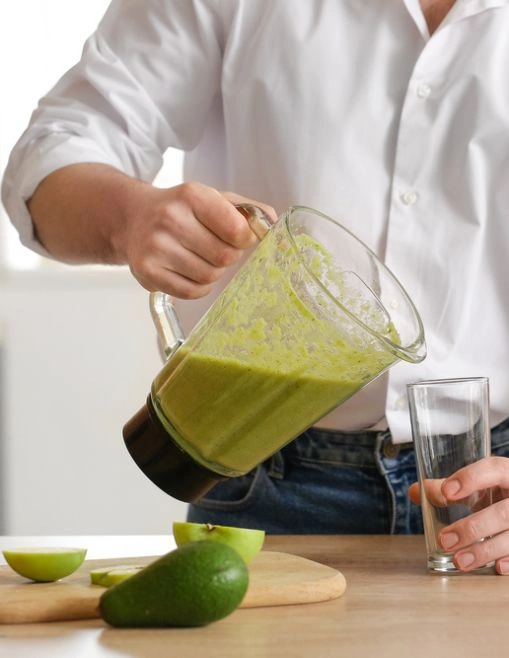Can You Die From Quitting Alcohol Cold Turkey?
Safely Manage Alcohol Withdrawal at Changes Healing Center
Table of Contents
Quitting alcohol is an admirable goal. There are so many harms done by alcohol consumption and you may already be dealing with many of those issues in your life.
Many people start out with powerful motivation and attempt to simply quit cold turkey. But can you die from quitting alcohol cold turkey? That’s the question that we will take a closer look at below.
Rather than quitting alcohol cold turkey on your own, a better plan would be to work with a rehab facility like Changes Healing Center. Severe withdrawal symptoms can appear shortly after you stop consuming alcohol and very serious medical complications can follow.
Put yourself in the care of a professional and receive the treatment necessary to make sure you stay safe. Call today to learn more when you are ready, and keep reading to learn more about the realities and risks of at-home detox.
Understanding Alcohol Withdrawal
The human body adapts over time to the presence of alcohol. Heavy drinking over a prolonged period will cause the body to become accustomed to having alcohol in the system. The central nervous system works harder and harder to counter the depressant effects of alcohol.
Then, when the alcohol stops being provided to the body, things change. The nervous system is still in an overactive state even though it no longer has to be. Withdrawal symptoms are the result. The severity of these withdrawal symptoms will depend on how long the individual has been drinking and how much they drink. Withdrawal symptoms can range from mild and just a bit uncomfortable to dramatic and life-threatening.
Symptoms of Alcohol Withdrawal
Everyone who quits alcohol will experience some symptoms. The specific symptoms experienced, and their severity, will depend on a variety of factors.
If you are getting ready to quit alcohol, or you have recently done so, you may experience some of the symptoms listed below.
- Anxiety and restlessness
- Nausea and vomiting
- Sweating and fever
- Rapid heart rate
- High blood pressure
- Insomnia
- Hallucinations
These are just some of the potential symptoms that you may face in this process. Alcohol use disorder, and alcohol withdrawal, affect every individual in different ways, so there is no way to know exactly what your experience will be like.
Quitting alcohol cold turkey is such a challenge in large part because of the unknown factor. Once the alcohol stops entering your system, severe symptoms will usually not be far behind.
Why an Alcohol Home Detox is So Risky
It might seem simple enough to just stop drinking cold turkey. It’s just a matter of willpower – right? Not exactly. Even the most determined person in the world would end up struggling with severe withdrawal symptoms. Once that happens, it’s likely that the individual will either give up on quitting and return to alcohol use or will wind up facing a very serious medical condition. Neither outcome is a good one.
Your alcohol withdrawal symptoms can quickly escalate when you don’t have medical supervision on your side. For example, severe dehydration is a possibility as a result of the excessive sweating or vomiting that may be occurring. As your blood pressure rises, heart complications can develop, which are obviously quite serious.
There is also the risk of having seizures when quitting alcohol cold turkey. That’s even more likely for someone who has been engaging in heavy drinking for a long period of time. Seizures can cause serious injury or even death. Another concern for an at-home detox process is a condition called delirium tremens, which we will talk more about below.
The risks are simply not worth it to attempt to break your alcohol addiction on your own with an at-home detox. Quitting alcohol cold turkey without getting help from a professional team is going to put your body at risk and you will be less likely to be successful in the end.
The Dangers of Delirium Tremens
If you have ever heard anyone mention “DTs” when talking about alcohol withdrawal symptoms, they were talking about delirium tremens. This is the most serious of the many alcohol withdrawal symptoms and it can be fatal in some situations.
The biggest risk for delirium tremens typically comes on around two to three days after the last drink was consumed. Many of the symptoms that are seen in this condition mirror what we already highlighted above. In addition, there is the potential for severe confusion and agitation, visual or auditory hallucinations, irregular heartbeat, and more.
It is the risk of experiencing uncontrolled delirium tremens at home that makes quitting alcohol cold turkey without medical help such a risky choice. That’s especially true if you have tried to quit before and you already know that you are susceptible to strong withdrawal symptoms. Heavy alcohol drinkers are risking serious health problems and even death when trying to quit alcohol cold-turkey all on their own.
The Importance of Medical Supervision

It should be clear by now that going through a medical detox is a far better way to approach dealing with your alcohol addiction. You will inevitably face problems associated with alcohol withdrawal when you quit drinking, but those problems can be far better managed when a medical team is on hand and ready to help.
As severe symptoms arise, you can receive a number of different treatments to make the process a little easier and make sure your health doesn’t stray into dangerous territory.
Your alcohol withdrawal timeline can’t be perfectly predicted once you stop drinking. That’s why you’ll be monitored around the clock by healthcare professionals when in a medical detox program. The healthcare professionals in charge of your care will be able to look for concerning signs and act on those symptoms before they become worse.
Medication Assisted Treatment for Alcohol Use Disorders
It’s also possible to use medication to aid in dealing with alcohol withdrawal syndrome. Again, this is only possible with professional help. Medications that can ease the discomfort of detox can only be administered safely and correctly by a trained expert in this field.
Utilizing medication assistance may make it possible to get through the withdrawals associated with severe alcohol addiction where you might not have been able to make it through alone.
Don’t underestimate the value of psychological and emotional support in the detox process. The medical care you receive is critical, of course, but so too is having someone on your side who is focused on making sure you get through withdrawals safely and are in a position to take the next steps toward recovery.
Alcohol dependence is a powerful and difficult enemy to overcome. You want as many advantages on your side as possible when those severe alcohol withdrawal symptoms start to settle in.
What to Expect in a Medical Detox Program
If you have never before completed a medical detox program, you may not know what to expect when getting started. At Changes Healing Center, we provide all of our clients with as much information as possible going into the process so there are few surprises and the individual can simply focus on healing.
The first step in a medical detox is the evaluation. The professionals charged with your care will evaluate your current alcohol use disorder and identify your withdrawal risk level before getting started. This helps the team know what to expect and understand what type of care may be required. Having an idea of what to expect in terms of withdrawal symptoms positions everyone for a successful outcome.
Stabilization as the Foundation for Successful Alcohol Detox

Stabilization becomes the primary goal once the actual detox for alcohol has begun. Alcohol withdrawal syndrome will be actively managed through the use of medications and other treatments. If you have been struggling with a significant alcohol use disorder, there are sure to be strong withdrawal symptoms that will start shortly after you quit alcohol. Those are to be expected and will be managed by your care team.
Making it through the detox process is a great step. It is not, however, a finish line. You can think of detoxing from alcohol as the beginning point of your recovery journey. Now that the alcohol is out of your system in a physical sense, it will be time to work on your physical and mental health to support lasting recovery through the ups and downs of daily life.
Many different types of alcohol treatment approaches will be suggested for this period after detox is completed. Those treatments can include therapy and counseling, as well as group meetings, developing new life skills and hobbies, and much more.
Every individual will follow a unique path and will be guided by experts to find the right way forward. Recovery is not a one-size-fits-all process, although there are certainly common features that apply in many cases.
Connect with Changes for Sobriety Support Today
Breaking the cycles of alcohol abuse or addiction is a substantial challenge. Putting the right help on your side will dramatically improve your chance of doing this safely and successfully.
When the alcohol withdrawal symptoms start to take over your body, knowing that you have an experienced, professional team watching over you from start to finish is a great relief.
To get started with such a team, reach out to Changes Healing Center today. We have a talented group of professionals who are standing by and ready to help you approach this turning point in your life.
Give us a call now to chat privately with a representative and learn more about the services we provide. It would be an honor to serve you.

